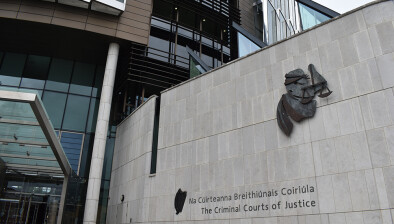High Court: Prosecution allowed to proceed despite delay

Andrew McKeown BL
The High Court has found that the balance of justice lies in favour of the prosecution of a man who, while a minor, allegedly assaulted gardaí and damaged court property while attempting to escape custody.

About this case:
- Citation:[2020] IEHC 385
- Judgment:
- Court:High Court
- Judge:Mr Justice Garrett Simons
Background
Ronnie Wilde sought the restraint of the prosecution of criminal charges pending against him, on the basis of prosecutorial delay. The alleged offences are said to have occurred at a time when he was 16 years old, and thus a child as defined under the Children Act 2001.
On 22 November 2016, Mr Wilde appeared before the High Court at Cloverhill courthouse. Having been refused bail, he is alleged to have attempted to escape from custody. It is further alleged that, during the course of this incident, he assaulted three members of An Garda Síochána and damaged a glass door panel at the courthouse.
He was charged with criminal damage to the door of the courthouse, two charges of assault and a charge of assault causing harm contrary to the Non-Fatal Offences Against the Person Act 1997 s.2 and s.3. The Director of Public Prosecutions directed that the offences be dealt with summarily in the District Court, which later accepted jurisdiction
Mr Wilde was ultimately charged with the offences on 17 December 2018, some two years after the date of the alleged incident. As of that date, he had already achieved his age of majority.
Padraig Dwyer SC, for Mr Wilde, argued that had the Garda investigation been conducted expeditiously, Mr Wilde would have been entitled to have the charges against him determined in accordance with the Children Act 2001. This would have afforded him certain statutory entitlements in respect of anonymity, sentencing principles, and a mandatory probation report.
The benefit of these statutory entitlements is not now available in circumstances where he had reached the age of majority prior to the trial.
High Court
The Children Act 2001 does not expressly address the position of an alleged offender who has transitioned from being a child to an adult between the date on which the offences are said to have occurred and the date of the hearing and determination of criminal charges arising from those alleged offences.
Mr Justice Garrett Simons said that it “would have been helpful” if the legislation indicated what is to happen in such circumstances.
The judge noted that in the case of a criminal offence alleged to have been committed by a child or young person, there is a special duty on the State authorities, over and above the normal duty of expedition, to ensure a speedy trial (BF v DPP [2001] 1 IR 656, Donoghue v DPP [2014] 2 IR 762)
In Donoghue v DPP [2014] IESC 56; [2014] 2 IR 762, the Supreme Court indicated that, in such judicial review proceedings related to delay in the prosecution of juveniles, the first question to be determined by a court is whether there has been culpable or blameworthy prosecutorial delay. In the event that there has been such delay, then the court must next carry out a balancing exercise.
Mr Justice Simons, citing the judgment of Mr Justice Michael White in Cash v DPP [2017] IEHC 234, noted that in determining whether there has been prosecutorial delay in a child’s case, it is only appropriate to have regard to events occurring prior to an alleged offender having reached the age of majority. He found that most of the delay in the present case occurred before Mr Wilde had reached the age of majority.
He cited the judgment of Mr Justice Nicholas Kearns in Daly v DPP [2015] IEHC 405, that there is no obligation on the prosecuting authorities to unrealistically prioritise cases involving minors. The judge said that the interview began with reasonable despatch, and that Mr Wilde had been interviewed, CCTV footage obtained; and a referral had been made to, and decision received from, the Garda Youth Diversion Office, all within six months of the date of the alleged incident. “It is the delay thereafter that is unreasonable.”
Mr Justice Simons was satisfied that the period of more than two years which elapsed in this case was excessive.
The judge noted that the principal prejudice alleged by Mr Wilde was the loss of certain procedural entitlements under the Children Act 2001. The court said that the fact that the alleged offences had occurred at a time when he was a minor is something which will be taken into account by a sentencing court regardless (as per the judgment of Mr Justice George Birmingham in AB v DPP unreported, Court of Appeal, 21 January 2020).
The judge also stated that there was no real likelihood of Mr Wilde receiving a non-custodial sentence, if convicted of the offences, even with the sentencing principles under the Children Act 2001 s.96. He had already been convicted of a number of offences and had been detained in Oberstown for large periods of time.
The court, citing Smyth v DPP [2014] IEHC 642, Ryan v DPP [2018] IEHC 44, and Bernotas v Commissioner of An Garda Síochána [2019] IEHC 296, said that the “putative loss of the benefit of s.96 may be of less significance in the context of an accused who already has a criminal record and who is, therefore, more likely to have received a custodial sentence even if he had the benefit of s.96.”
The loss of the right to a mandatory probation report was not regarded by the court as a “particularly serious detriment” in circumstances where the trial court would have a discretion to seek such a report (RD v DPP [2018] IEHC 164)
Mr Dwyer SC drew attention to the fact that the offences are to be dealt with as minor offences before the District Court. He said that this distinguished it from cases such the Dos Santos v DPP [2020] IEHC 252. That submission, the judge said, was “well made.”
Conclusion
However, the court said that it “would tend to undermine the rule of law” if the DPP was restrained from prosecuting offences committed in a court building involving assaults on gardaí.
Mr Justice Simons said: “There is a public interest in ensuring the integrity of court proceedings, and the health and safety of those involved in transporting detainees to and from courthouses. It is essential to the rule of law to ensure that discipline and order are maintained at courthouses.”
The prosecution was allowed to proceed.








